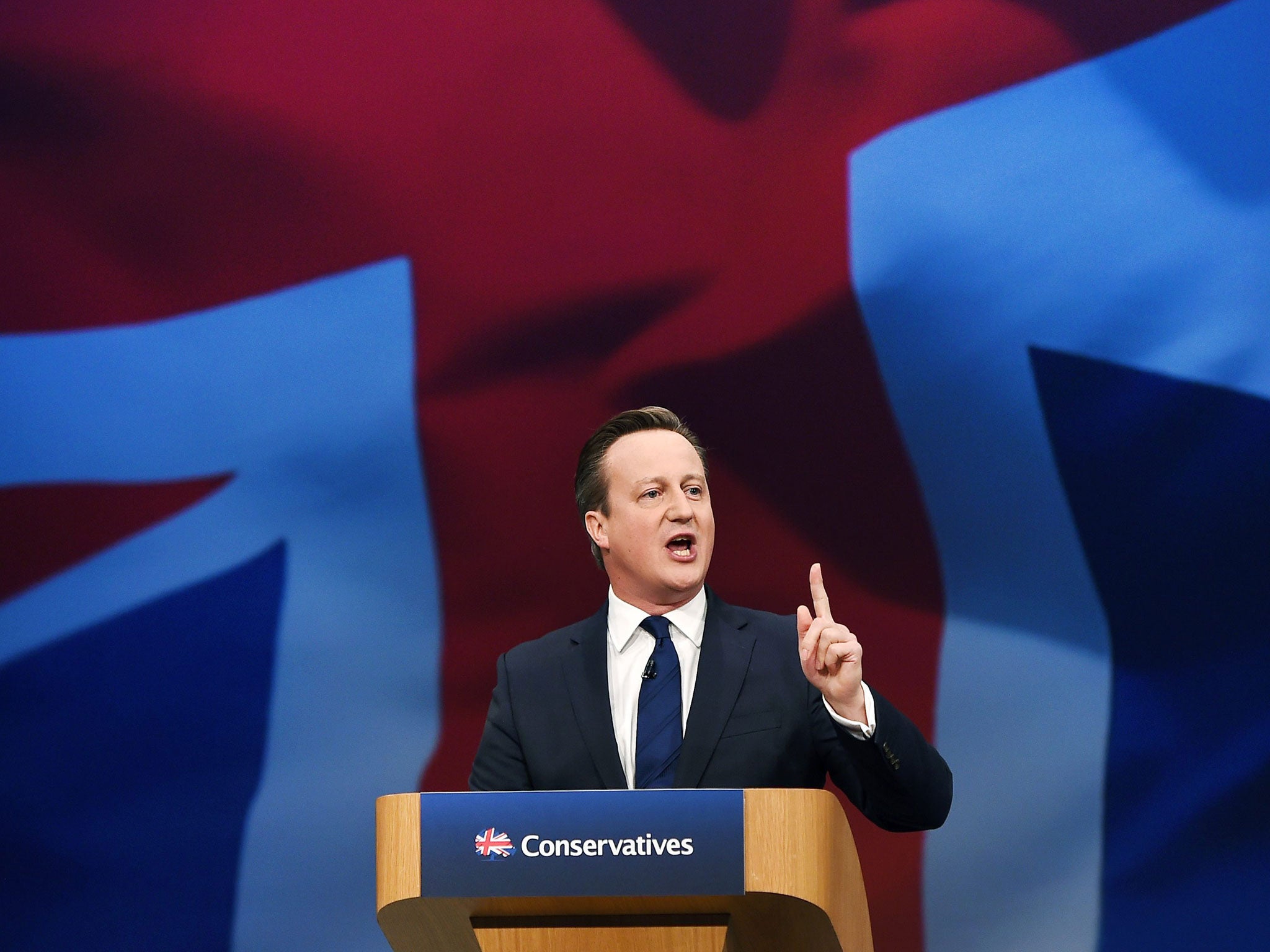It's no wonder David Cameron wants a 'greater Britain' – so far he's driven it into the ground
The Tories have failed to achieve any of their own economic targets, and only worsened living conditions, child poverty and the housing crisis

If one phrase summed up David Cameron’s speech to the Conservative party conference, it was “a greater Britain”. He used the expression 13 times and the word “greater” no fewer than 28 times, as he called for: “A greater Britain where people have greater hope, greater chances, greater security.”
There was definitely a whole lot of “greater” going on. But how much does Cameron’s “greater Britain” actually reflect what his party has done for the country? In his speech Cameron referred to some specific areas where the Tories are making Britain greater.
First was the traditional Tory stalwart, the economy. If you only listened to Cameron, you’d think we lived in some kind of economic Disneyland, a light of nations, or “a beacon in an uncertain world” to use his own words. However he didn’t talk much about what the Conservatives have actually done for the economy, instead preferring to criticise Labour’s economic ideas. There could be a reason for this.
The Conservatives have failed to achieve any of their own targets on economic recovery, including the all-important one of cutting the deficit, which has now been put back a further five years. In fact, their policies led to the slowest recovery on record with under 1.5 per cent average growth over five years. The recovery is so fragile that the Bank of England still doesn’t dare raise interest rates for fear of knocking it off track.
UK debt has risen rather than going down, as the Conservatives promised, and during their first term in government they presided over the worst five-year period for living standards for more than half a century.
Part of Cameron’s vision for a greater Britain is what he termed “an all-out assault on poverty”, combined with social reform to create a more equal society. This is almost laughable from the PM who has overseen the escalation of food bank use from 40,000 in 2009-10 to over a million this year.
The UK has one of the worst rates of child poverty in the industrialised world, with nearly four million, or a quarter of all children, living in poverty and 1.7 million in extreme poverty. And during his speech Cameron himself admitted that the UK has the lowest social mobility in the world. Here, children’s salaries are more linked to their fathers’ than in any other major country.
His solution to this poverty and inequality was predictable. “It’s simple,” he said, “get the adults a job.” The same old Tory line – get them back to work, cut benefits, stop the culture of scrounging. Despite the fact that 63 per cent of children living in poverty in the UK come from a family where someone works.
Housing was another area where Cameron promised a greater Britain. So far Cameron’s government has dropped the previous Labour government’s target to build 240,000 new homes a year by 2016. And it oversaw the lowest year of house-building since the war in 2012-13. Add to this the increasing ghetto-isation of London, where poor families are being slowly forced out, rents that have increased at twice the rate of inflation since 2001, and 4.5 million people on the waiting list for social housing, and you have a country with a severe housing crisis.
How does Cameron plan to turn this around? By the extension of the Right to Buy scheme to Housing Association tenants. That’s right – an extension of Thatcher’s policy that kicked off the housing crisis in the first place and helped enrich millions of private landlords at the expense of the taxpayer and the poor.
Cameron, in case you had missed it, wants a greater Britain. For a man who has so far failed to deliver by nearly every measure, this is quite a claim. You just have to look around you – at the poverty, the inequality, the people in insecure and inadequate jobs – to see the real state of the nation we live in – a lesser Britain, not a greater one in every way.
Join our commenting forum
Join thought-provoking conversations, follow other Independent readers and see their replies
Comments
Bookmark popover
Removed from bookmarks